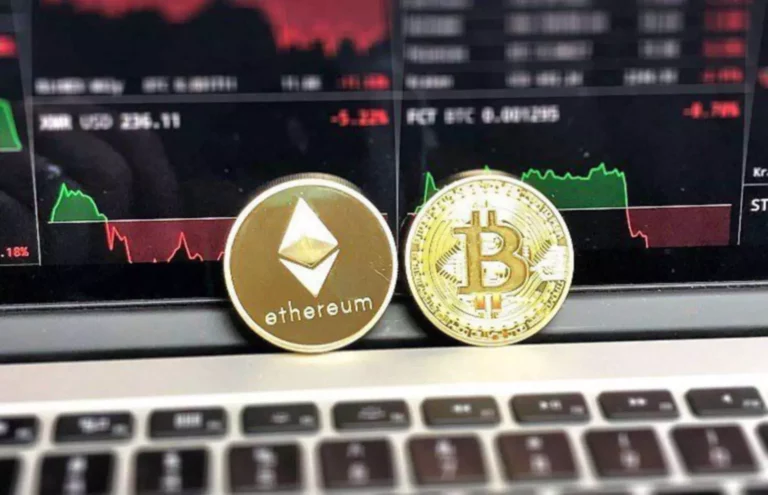It has a low monitoring error and is a low cost and handy way to make investments. In the straightforward terms, ETFs are funds that track indexes such as etp vs etf CNX Nifty or BSE Sensex, and so on. When you buy shares/units of an ETF, you are shopping for shares/units of a portfolio that tracks the yield and return of its native index. The primary distinction between ETFs and different types of index funds is that ETFs don’t attempt to outperform their corresponding index, but simply replicate the efficiency of the Index.
Etfmirae Asset Nifty Next 50 Etf
Once the underlying portfolio basket is deposited with the Fund together with a money element, the investor is allotted the items. An exchange-traded fund (ETF) is a set of investments similar to equities or bonds. ETFs will allow you to put money into numerous securities at once, they usually usually have cheaper fees than different kinds of funds. Once the brokerage account is opened, transfer the funding amount to the buying and selling account through on-line banking channels, wire transfer, or account funding options provided.
What’s The Difference B/w Etfs And Mutual Funds?
Investing in a global ETF may give your portfolio worldwide diversification, which is in any other case difficult. For example, Motilal Oswal NASDAQ 100 Index ETF exposes you to the web and know-how corporations listed on the Nasdaq inventory change. Investments in securities market are topic to market risks, read all the related paperwork rigorously earlier than investing. The contents herein above shall not be thought-about as an invite or persuasion to trade or invest.
Etfmirae Asset Nifty Midcap One Hundred Fifty Etf

As ETFs observe the efficiency of the underlying index, there may be a difference between the ETF return and the index return. If the ETF has a lower monitoring error, then it means that the fund’s return is closer to the return given by the index. An important aspect whereas deciding on a specific scheme is the period of the funding. Besides all this, components like fund house, objective of the fund and returns given by the funds should also be taken under consideration while deciding on a specific scheme.
Etfmirae Asset Nifty 1d Fee Liquid Etf

Through bond ETFs, investors receive exposure to various fixed-income devices such as Government bonds (with different maturities) and debentures. These ETFs combine the options of stock investments with the benefit of debt investments and the simplicity of mutual funds. An exchange-traded fund (ETF) is a diversified investment automobile that aggregates a basket of securities, similar to equities or bonds. ETFs provide buyers the opportunity to realize exposure to a broad range of belongings with relative value efficiency and enhanced liquidity in comparison with conventional funds.
What’s The Difference Between Etfs And Actively Managed Mutual Funds?
- As with shares, one must pay a brokerage to buy and promote ETF models.
- Once you open a demat account you can begin investing in the units of ETF by deciding on the ETF of your choice listed on exchanges and by transferring the funding amount.
- Exchange Traded Funds (“ETFs”) are open ended funding autos that are designed to commerce like an individual safety on a buying and selling venue.
- However, you can’t redeem models from ELSS Schemes earlier than maturity because of lock-in interval of three years.
- In such a case, you could not have the ability to promote any of your ETF items or could have to promote your models at a cheaper price.
An Exchange-Traded Fund (ETF) is an easy funding resolution for a retail investor. It is a sort of mutual fund whose items are traded on stock exchanges like shares. Like any other type of mutual fund, the investors’ cash is pooled right into a corpus that is invested in numerous securities to satisfy an outlined funding goal. While the Expense Ratio of ETFs is decrease, there are specific costs which are unique to ETFs.
ETF liquidity compared to the mutual funds have excessive liquidity thereby making this funding product well-liked. This makes ETF well-liked and handy when it comes to cash flow necessity. Exchange-traded funds are a simple and cost-effective method to spend cash on a broad asset universe. Instant diversification and flexibility turn ETFs into a wonderful instrument any investor might want of their portfolio. Nevertheless, each investor ought to understand relevant risks and do their due diligence. ETFs are normally better for taxes than actively managed funds as a outcome of they do not distribute capital positive aspects as usually.
Portfolio turnover is a measure of how shortly the administration of a fund buys or sells securities within the fund over a certain time frame. ETFs generate a much lower turnover in the fund than actively managed mutual funds. This is as a outcome of exchange-traded funds are passively managed and require much less buying and selling of securities, which is known as having a low turnover. Buying and selling shares contain costs like securities transaction costs, brokerages, and so on.
Tracking error is the difference between an ETF portfolio’s returns and the benchmark or index it was meant to mimic or beat. Thereby, ETFs allow affordable exposure, benefiting from professional administration and avoiding legwork. All successful transactions will be updated in the Unit Holding inside T+2 or T+5 days (depending on the AMC’s rules and regulation).
The units could be purchased and bought on the prevailing real-time NAV. International ETFs put cash into worldwide shares thereby providing diversification beyond the Indian market… While the recognition of ETFs is rising quickly, it might be sensible if investors evaluated which funds can be best fitted to them after formulating their investment objectives and assessing their danger appetite. Investors trying to achieve publicity to international markets can achieve this through international market ETFs. These ETFs track indices of international markets, such as the Nikkei 225 in Japan or the Hang Seng Index in Hong Kong.
Because they are tied to a selected index, ETFs are likely to cover a discrete variety of stocks, versus a mutual fund whose scope of funding is topic to continual change. For these causes, ETFs mitigate the factor of “managerial danger” that may make choosing the right fund tough. Rather than investing in an ‘active’ fund managed by a fund manager, if you buy shares of an ETF you are harnessing the power of the market itself. Exchange-traded funds or ETFs pool together securities after which divide them up into smaller items to promote to traders.
These reasons could be administration charges, transaction costs, and an incapability to copy the index exactly. Another thing that traders should notice is that the possibility of a liquidity drawback, particularly in less-traded ETFs, could lead to wider bid-ask spreads and higher transaction prices. ETFs, or Exchange-Traded Funds, offer a versatile method to put money into a various portfolio of assets, combining the flexibility of stocks with the diversification of mutual funds. They’re cost-effective, easily tradable, and best for each novice and seasoned traders looking for to reinforce their funding strategies. Exchange Traded Funds or ETFs present traders with greater control over their investments whereas offering diversification advantages at a lower price compared to traditional investments.
ETFs can undergo from the volatility of the market, forex fluctuation, and shifts in the underlying index or asset. Investors must rigorously assess the dangers concerned with every ETF before investing their money. These ETFs replicate stock market indexes like the Nifty 50 or Sensex and give an investor entry to the broader market.
Read more about https://www.xcritical.in/ here.

Leave A Comment